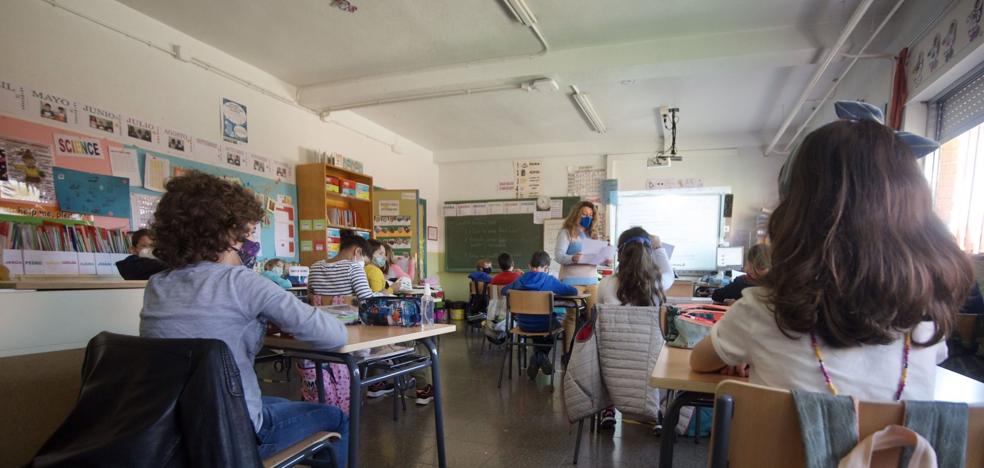The Canary Islands send the first decree of the new educational curricula to the Consultative

File photo of primary school students in class during covid courses. /
education
Ask for the opinion for Children, the last step to approve it. There are still Primary, ESO and Baccalaureate. Teachers start classes with drafts
Canary Islands
it is one of the seven autonomous communities where the course will begin without having approved the new curricula that will be taught in the classrooms by the application of Lomloe, the eighth educational law of democracy that begins to be implemented this year in odd courses. Teachers only have the drafts published on their website by the Ministry of Education.
The Governing Council yesterday took one of the last steps to approve the Early Childhood Education curriculum,
by urgently requesting the opinion of the Consultative Council of the Canary Islands on the draft decree establishing the new organization of the educational stage. It is the last phase of processing for the "imminent" approval and publication in the Official Gazette of the Canary Islands (BOC).
But
There are still the decrees of Primary Education, ESO and Baccalaureate. The Canarian Minister of Education, Manuela Armas, is convinced that the final texts "will not change at all" with respect to the published drafts.
Armas, who affirms that the Primary curriculum is also in its final phase, justifies the delay in that "the path that a decree has to take in the Canary Islands is so guaranteed that it is exhausting, other communities have a very fast journey, they do it with a order or with reports only from the Consultative”.
The counselor defends the method of preparing these curricula in the Canary Islands:
“Our work has been very participative, with commissions of teachers, because the view of the teaching staff is important; In addition, there are communities that have only curriculated the odd courses, which I think is nonsense, and we have done it all the courses».
According to the counselor, "all these circumstances have meant that the curricula are not approved,
but we are sure that they will not change with respect to the drafts»highlighted this newspaper.
The teaching staff will have to dedicate a large part of this beginning of the course to the new programs based on these curricula. According to Armas, a large part of the Canarian teaching staff already teaches from competency-based teaching, "which is where the new law has the most impact", so many already have advanced work. “Obviously you have to plan and
At first, a new law can generate insecurity, but they will be accompanied”assures the person in charge of Education.
Strategic lines
In autonomous communities without a co-official language, such as the Canary Islands, the Ministry of Education establishes 60% of the curriculum and the rest is completed by each community.
Armas points out that the elaboration of the contents on the islands has been carried out based on
to six strategic lines: sustainable development, gender perspective and coeducation, inclusive education, competent emotionality, the cultural sense of education and the social and cultural heritage of the Canary Islands, all permeating the content taught in the classroom in a transversal way.
Integral formation
In a statement, the Government of the Canary Islands points out that the greatest novelty incorporated in the Early Childhood Education decree "is the development of a common curriculum for all students who attend both the first and second cycles of the Early Childhood Education stage, which includes key competences as a fundamental element, the development of which should start from the very beginning of schooling'.
The note highlights that the Early Childhood curriculum establishes the learning that must govern the teaching practice at this stage, in a way that guarantees the comprehensive education of boys and girls, contributes to the development of their personality and begins their incorporation into active and responsible citizenship; lessons that have also been established in line with the objectives of the European Union and UNESCO for the 2020-2030 decade.
Its purpose, he adds, is to contribute to motor, emotional, psychic, relational, cognitive and artistic development, as well as to all the potentialities and capacities that boys and girls possess from birth, with attention to individual rhythms and “within a climate and environment of safety and trust in which students, their families, tutors, and other significant adults feel welcomed, respected, and with expectations of action, participation, and learning.”










